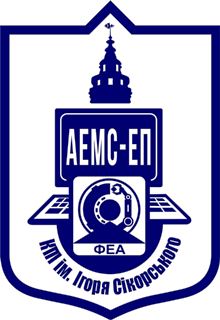Research into solar powered cars is to be accelerated through a collaboration between researchers of world universities in Electric Vehicle Race as they work together to compete in the Bridgestone World Solar Challenge.
The ultimate synergy between nature and motion
The Bridgestone World Solar Challenge has welcomed the greatest minds from around the world to Australia to push the limits of technological innovation for over 30 years.
As the world’s toughest and most prestigious solar car event, the Bridgestone World Solar Challenge provides teams the opportunity to design and build a vehicle to operate along a 3,000 kilometre outback route from Darwin to Adelaide powered only by the energy of the sun.
A test of teamwork and technology
The Bridgestone World Solar Challenge gives passionate and bright persons the opportunity to hone their skills in teamwork and fast track their careers in the fields of engineering, automotive technology, and more.
Join us as we push the boundaries of human and technological innovation for a more sustainable transport future.
From page of Electric Vehicle Race Team of Faculty of Engineering, University of Nottingham’s which usually takes part in the competition:
Researchers from the Faculty of Engineering are working with the University of Nottingham’s highly successful Electric Vehicle Race Team to demonstrate why current research is important for the future of transportation.
In the last five years, the Race Team’s electric superbike has achieved three podium finishes at the Isle of Man TT Zero event for motorcycles powered without carbon-based fuels and creating zero toxic emissions. We now aim to exploit our technological knowledge and combine our research expertise to develop a new solar-powered car with the aim of entering a state-of-the-art vehicle in to the iconic Bridgestone World Solar Challenge in 2021. As the world’s most famous car race event of its type, it fosters the development of experimental, solar-powered car technology on the epic 3,000-kilometre drive through the Australian Outback from Darwin to Adelaide.
In addition to offering the most high-profile platform for future research and development, our Solar Car will be a fantastic tool for outreach initiatives, making the public more aware of the potential of low carbon fuel technologies and inspiring future generations to consider a career in this exciting and crucial research field. This activity has an amazing impact on our students with a fantastic level of student engagement which leads to awareness and contributes significantly to the development of the future leaders that this industry will need.
Whilst electric cars are already on the market they require charging from the mains utility supply. One or two do have solar panels on the roof, but these don’t give significant energy, maybe a maximum of 1000 miles per year. The car for the world solar challenge needs to do about 100 times better than this to make the journey on solar energy only. This can be achieved through developing new technologies and systems, with significant input from our research, to demonstrate energy capture, storage and efficiency.
This project is truly a cross-disciplinary programme of work and application, with everything being considered from chemistry of cells and metrology to aerodynamics and lightweight drivetrains. The vehicle is planned to form a technological demonstration platform for various technologies form this spectrum of new and novel ideas. It is this technological development and demonstration that will lead to the advances needed for truly zero carbon use of transportation systems to become a reality.
The planning for this project started in summer 2020 and the highlight of this project’s initial phase will be the World Solar Challenge event in Australia in October 2021, with outreach and public engagement activities continuing into the summer of 2022.”
Sadly, the event in cancelled for 2021 but will definitely be back next year.
Find out more about the Bridgestone World Solar Challenge.










